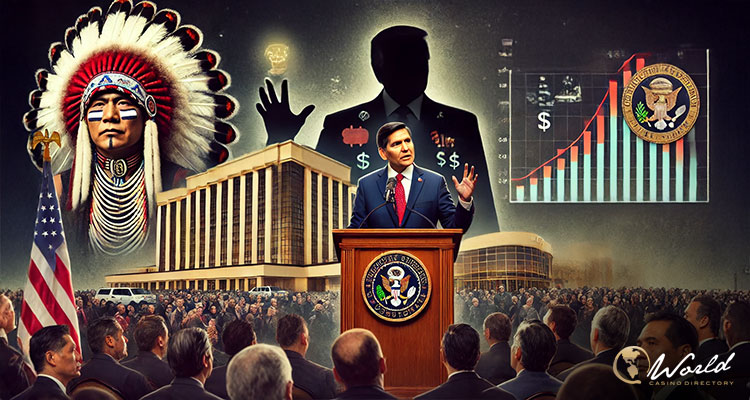During a pivotal session at the Indian Gaming Tradeshow & Convention in San Diego, California tribal leaders, including James Siva, Chairman of the California Nations Indian Gaming Association (CNIGA), and Isaiah Vivanco, Chairman of the Soboba Band of Luiseño Indians, expressed serious concerns about the future of tribal gaming. Titled “Under Siege: The Growing Threats to Tribal Gaming in California,” the discussion underscored the nationwide relevance of these threats, which include aggressive moves by the Trump administration, the unchecked rise of online and sweepstakes casinos, and evolving legal challenges.
Regulatory challenges and sovereignty threats:
James Siva articulated the immediate threats during his presentation, highlighting a recent, unsettling decision by the Bureau of Indian Affairs which overturned a prior approval for the Scotts Valley Band of Pomo Indians, reflecting a broader trend of rapid policy shifts under the current federal administration. Siva detailed how these changes threaten tribal sovereignty and economic stability, emphasizing the need for tribes to adapt swiftly to protect their interests. “Having that landmark decision happening, then having it seemingly reversed, shows this new administration is willing to make radical changes very quickly,” Siva lamented.
An unexpected yet formidable challenge has emerged from sweepstakes casinos, which Siva identified as a critical and rapidly growing threat to tribal gaming revenues. These entities, according to Siva, have exploited legal gray areas to build a multi-billion-dollar industry, siphoning resources from traditional tribal gaming operations. “They’re fully in our focus right now and they have a huge target on their back. What they’re doing is illegal gaming, point blank, period,” Siva declared, as reported by CDC Gaming, emphasizing the urgency of addressing this issue through legislative or legal means.
The dialogue also covered the broader implications of recent regulatory proposals, particularly concerning the Commodity Futures Trading Commission’s move to potentially redefine sports betting as a tradable commodity. This change could allow sports betting markets to penetrate jurisdictions like California, where current laws do not permit such activities. “It’s one of the biggest threats we’ve ever faced and it’s happening so quickly and outside our scope of normal expertise,” Siva explained, indicating the potential for immediate and disruptive impacts on tribal gaming exclusivity.
Collaborative efforts and advocacy:
Reflecting on the need for unified action, both Siva and Vivanco stressed the importance of lobbying and legal preparedness to confront these challenges. Their discussions revealed a landscape where tribal leaders must navigate not only federal and state politics but also the intricacies of emerging gaming technologies and markets that threaten to alter the foundational aspects of tribal gaming.
The session ended with a call to arms for tribal leaders to anticipate, react, and mobilize against these multifaceted threats to their heritage and economic engines. As the gaming industry evolves, the stakes for maintaining control and integrity within tribal gaming are higher than ever, demanding a proactive and strategic response to safeguard their future.


